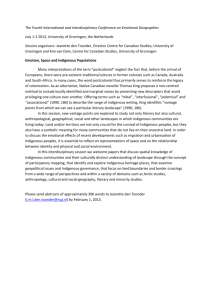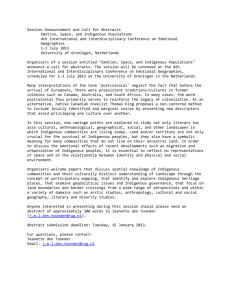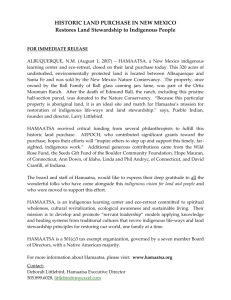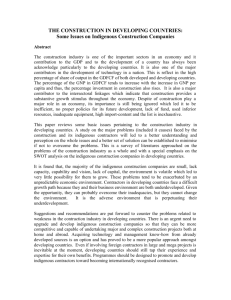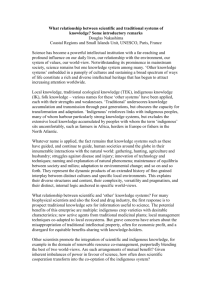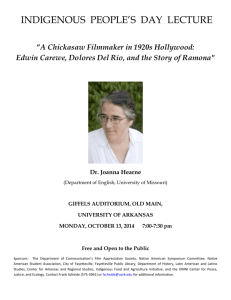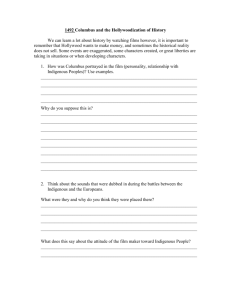POSTCOLONIAL HEALING SPACES: REPRESENTATION AND
advertisement
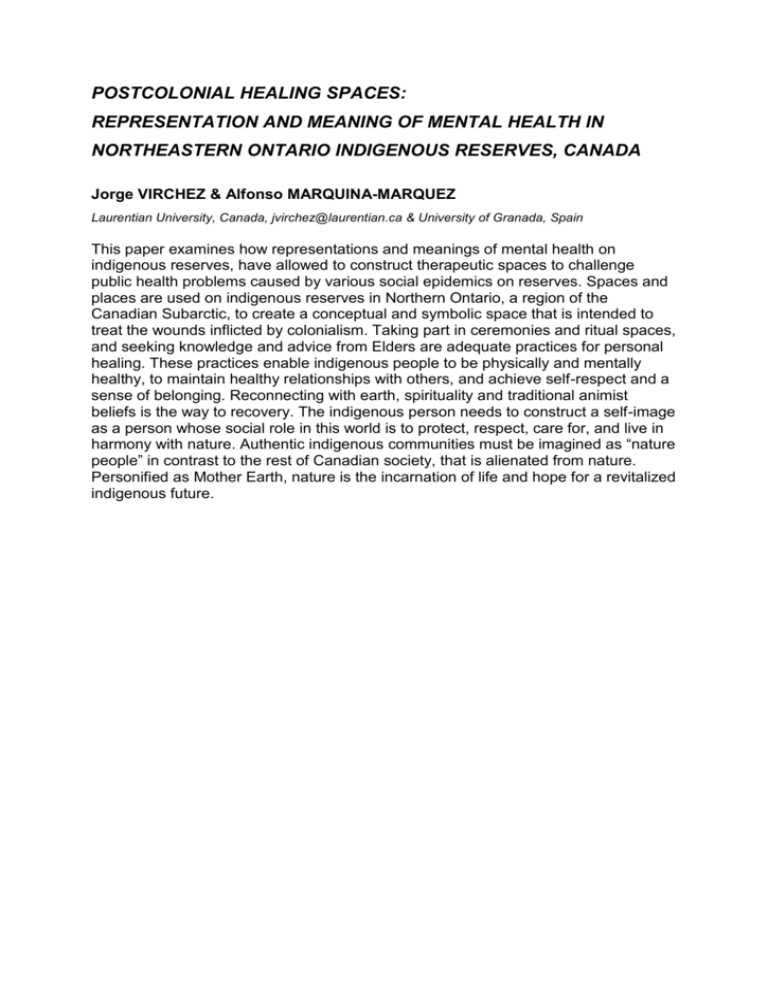
POSTCOLONIAL HEALING SPACES: REPRESENTATION AND MEANING OF MENTAL HEALTH IN NORTHEASTERN ONTARIO INDIGENOUS RESERVES, CANADA Jorge VIRCHEZ & Alfonso MARQUINA-MARQUEZ Laurentian University, Canada, jvirchez@laurentian.ca & University of Granada, Spain This paper examines how representations and meanings of mental health on indigenous reserves, have allowed to construct therapeutic spaces to challenge public health problems caused by various social epidemics on reserves. Spaces and places are used on indigenous reserves in Northern Ontario, a region of the Canadian Subarctic, to create a conceptual and symbolic space that is intended to treat the wounds inflicted by colonialism. Taking part in ceremonies and ritual spaces, and seeking knowledge and advice from Elders are adequate practices for personal healing. These practices enable indigenous people to be physically and mentally healthy, to maintain healthy relationships with others, and achieve self-respect and a sense of belonging. Reconnecting with earth, spirituality and traditional animist beliefs is the way to recovery. The indigenous person needs to construct a self-image as a person whose social role in this world is to protect, respect, care for, and live in harmony with nature. Authentic indigenous communities must be imagined as “nature people” in contrast to the rest of Canadian society, that is alienated from nature. Personified as Mother Earth, nature is the incarnation of life and hope for a revitalized indigenous future.


